The photo shows an Asian weaver ant hanging upside down on a glass-like surface and holding a 500mg weight in its jaws.
It was captured by Dr Thomas Endlein of Zoology department at the University of Cambridge who was investigating the sticky feet of ants and other insects.
Ants can change the size and shape of the pads on their feet depending on the load they are carrying,’ Dr Endlein said.
‘If they have to carry heavy loads they increase the contact area, and when they need to run they decrease it.’
Dr Endlein added that as well as shedding light on ants' seemingly gravity-defying feats, the research could help scientists develop better glues.
‘The pads on ants' feet are self-cleaning and can stick to almost any type of surface,’ he said.
‘No man-made glue or adhesive system can match this.
‘Understanding how animals can control their adhesive systems should help us come up with clever adhesives in the future.’
He also explained how he enticed the ant to hold on to the weight.
'The ants are very aggressive indeed by nature, so they will try to grab and snatch everything you put close to them,’ he said.
‘Once they grab on to it, they don’t let go as they try to defend their territory.
You can make them even more aggressive by annoying them with CO2 – they become really vicious and really angry.’
The image won first prize in the Biotechnology And Biological Sciences Research Council science photo competition.
Other pictures included a crow using a stick to fish food, a killer whale and a salmon caught in a net.
Dr Endlein won £700 of vouchers for photographic equipment.
'It won first prize because it was a beautiful image and managed to convey complex science,' said the BBSRC.
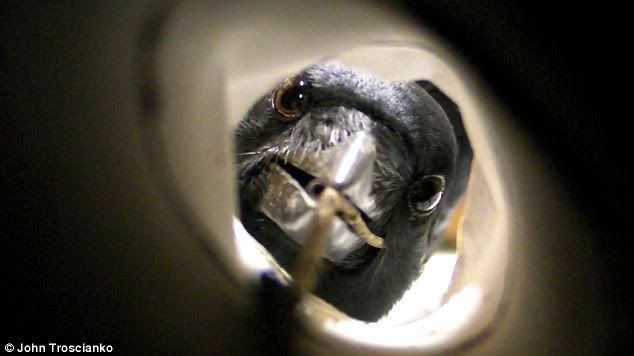
Bird's eye view: Jolyon Troscianko, University of Birmingham, took this photo of a New Caledonian crow using a tool to fish wood-boring beetle larvae from decaying logs
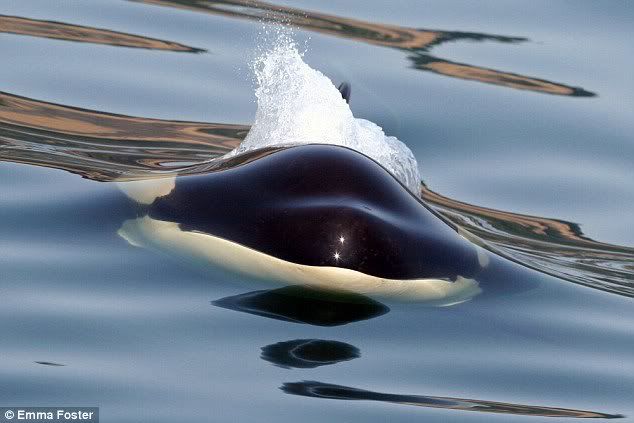
Runner up: University of Leed's Emma Foster's Southern Resident killer whale image impressed the judges
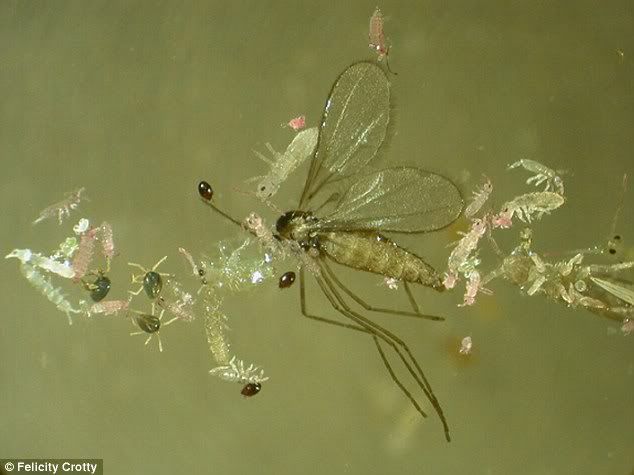
Mites, springtails and other insects collected from a soil sample, by Felicity Crotty, North Wyke Research
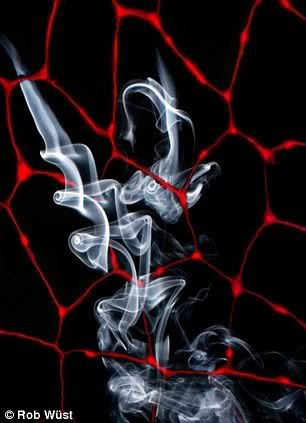
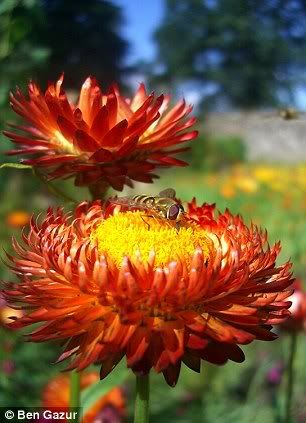
Ben Gazur, University of Edinburgh, took this photo of a hoverfly on a flower and another in flight. Right, using a dye to visualise capillaries in skeletal muscle tissue, Rob Wüst, University of Leeds, aimed to investigate to what extend oxygen supply and utilisation affect muscle function in smokers
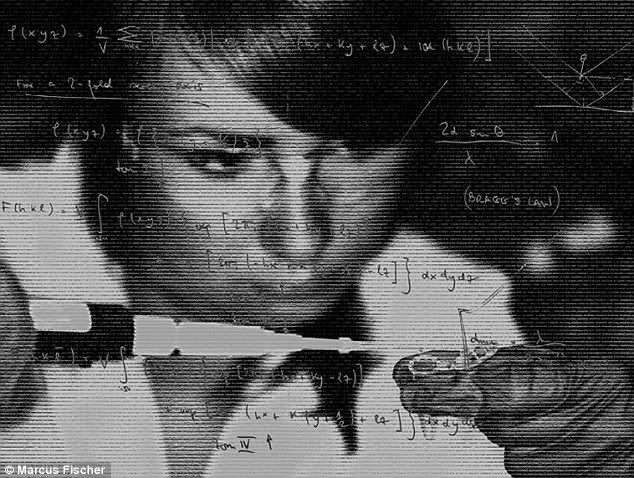
Marcus Fischer, University of York, submitted this image of the 'harmony of theoretical and practical research'
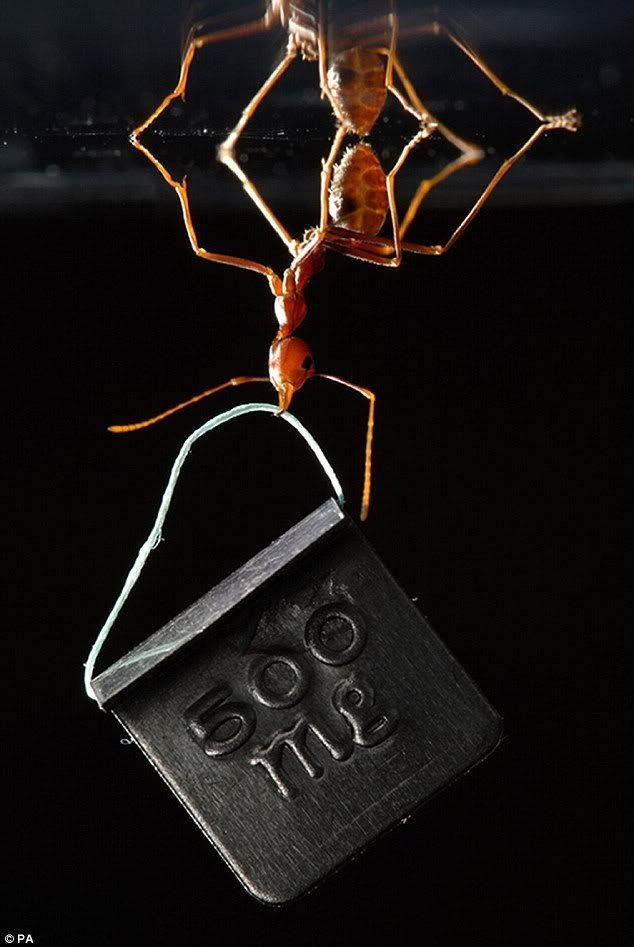
Astonishing ant-ics: The photograph of an Asian weaver hanging upside down on a glass-like surface and holding a 500mg weight in its jaws has scooped first prize in a science photo competition



